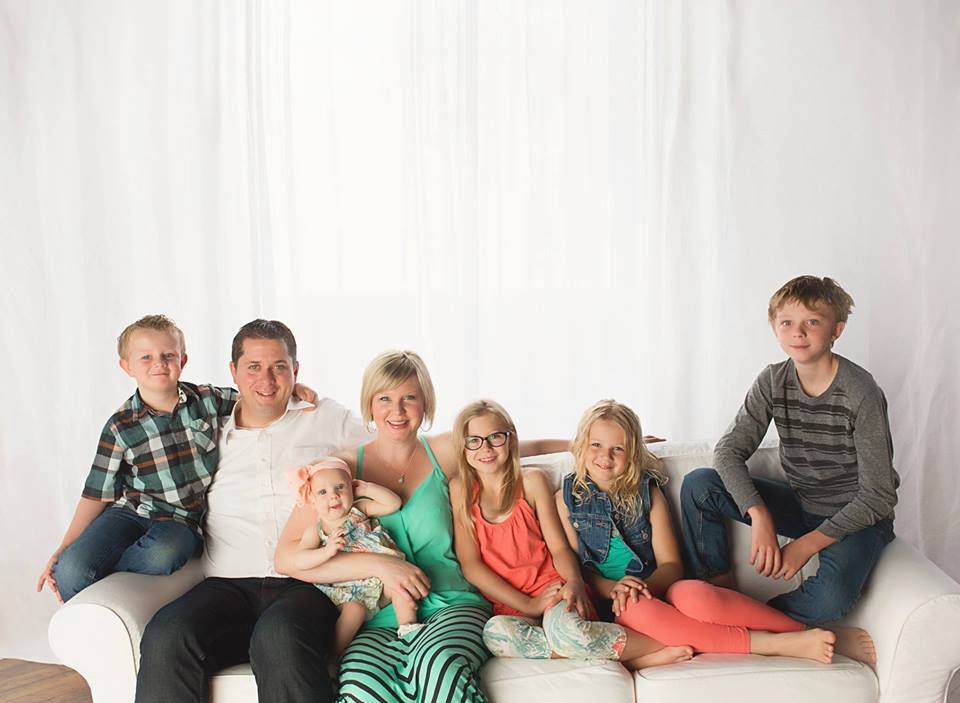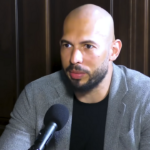By Jonathon Van Maren
With the Conservative leadership race reaching the final stretch, I’m sure I’m not the only one who is getting a bit tired of the dozens of daily emails from every candidate. Like most of you, I’ve known who my top choices are for months. Pierre Lemieux and Brad Trost are two solidly pro-life candidates, and putting them in the top three sends the message that there is still an appetite for social conservative policies in the Conservative Party of Canada—especially since there are so many of us. But some social conservatives seem hesitant to support the other candidate in my top three: Andrew Scheer.
The initial suspicion comes from the fact that at his first press conference, Andrew Scheer appeared to use the now-infamous Stephen Harper language of “not reopening the debate.” As my friend Alissa Golob of the political pro-life group Right Now pointed out, he clarified what he meant in follow-up interviews, pointing out that he is pro-life, has a 100% pro-life voting record, and that as Speaker of the House sided with Mark Warawa when the British Columbia MP was being silenced over his attempt to create a discussion on gender-selection abortion.
This is genuinely important to note, because while Stephen Harper may have courted social conservatives when he was attempting to secure leadership, he never claimed to be pro-life. Not even his biographers (including John Ibbitson) could uncover what Harper truly felt about abortion—although his wife Laureen’s pro-choice position was always well-known in Ottawa circles. Scheer actually is pro-life and has a record to prove it. He is a devout Catholic, a father of five, and has made no secret of his beliefs throughout his political career.
I understand that the number one fear among social conservatives is that Andrew Scheer might be a Patrick Brown. Brown was also a former Conservative MP, and when he decided to run for provincial politics he promptly reached out to social conservatives, attending meetings with pro-life leaders and assuring them that he would support their policies. Brown pointed to his own perfect pro-life voting record as proof that he could be trusted. As soon as Brown managed to secure the leadership of the Ontario Progressive Conservatives, however, he turned on social conservatives, and then lashed out as he found himself caught in an increasingly sticky web of lies created by the disparity between what he said in public and what he said in private. Brown then repudiated social conservatives publicly, and worked behind the scenes to keep social conservatives out of the party and either voting with Wynne’s Liberals on social issues or not showing up to vote at all.
Andrew Scheer is not a Patrick Brown, and not just because Brown supports a carbon tax and Scheer doesn’t. Andrew Scheer’s life and record display the authenticity of the convictions he articulates: he defended the right of MPs to speak their conscience as Speaker, and recommitted himself to allowing votes of conscience as a leadership candidate. Those who knew more about what goes on inside the Ottawa bubble were always warier of Patrick Brown, and many suspected that his initial support of social conservative policies was a matter of convenience rather than any deep-held convictions that were evidenced by the rest of his life. But Andrew Scheer is a different story entirely.
It’s important for social conservatives to remember that we desperately need principled leaders that support us on a host of other hot-button issues at the moment, as well. Across Canada, leaders like Kathleen Wynne and Rachel Notley are attempting to transform the public education system and ensure that their socially liberal values are taught in schools and social conservative values are kept out. This is one of the reasons that so many Christians opt to homeschool or send their children to a private Christian school—to ensure that they can pass on their values without state interference. It is impossible to overestimate how essential this right is to Christian communities, and how important it is that we elect a leader who supports those rights.
Andrew Scheer is one such leader. Early on, he released a policy describing his position on “Support for Parents of Independent School Children and Homeschoolers,” with this statement in particular catching my eye: “Parents have many reasons to send their children to independent schools or to homeschool. An increased emphasis on particular subject matter, special education needs, or a desire for a religious focus, the reasons are as individual as each child. I believe that parents have the primary responsibility for educating their children, and the government should make it a little easier for parents to make their own choices.” Keep in mind that while this statement may seem common sense, most of our provincial leaders at the moment do not believe that parents are the primary educators, and are willing to fight parents for the right to pass on particular values.
Andrew Scheer, by the way, sends his own children to a private Christian school, and is thus familiar with making sacrifices to pay the higher tuition costs and the reasons parents opt to send their children to an independent school. This is not some policy Scheer has conjured up to win over social conservatives, this is one he has drafted and put forward based on his own personal experience as a parent. Those of us—myself included—who want a leader who understands and respects the motivations Christian parents have for sending their children to a Christian school can be assured that they have one in Scheer. Just in case that policy wasn’t enough to convince you, Scheer released a separate statement articulating the fundamental role of parents:
Andrew believes that the family is the cornerstone of Canadian society. Parents are ultimately the primary educators of their children, especially when it comes to values and customs. An Andrew Scheer government would always respect parents and their role in educating their children, including making educational choices outside of the public system. Andrew would always fight for and protect the rights of parents as first educators to their children.
And then there’s a policy that, if implemented, would be an enormous victory for pro-life activists across the country: Scheer’s promise to deny federal grant money to universities that refuse to protect free speech. Scheer specifically refers to the treatment pro-lifers have received on campus. Pro-lifers have been the target of yelling, chanting, and even violently disruptive demonstrations for years, many of which are designed to shut down debates and speaking engagements. University security often simply stands by, and in some cases even helps the protestors. But hitting universities where it counts—the wallet—could force them to actually become the marketplace of free ideas and the facilitators of debate that so few of them actually are.
I reached out to Andrew Scheer’s campaign for a statement on his beliefs, and received this response:
I have always voted in favour of pro-life legislation. I voted according to my conscience every time. I spoke out when Henry Morgentaler received the Order of Canada and I was proud to support Molly’s law. That is an important piece of legislation and I’d like to see it before the House again.
I took the lead on making sure the recent Euthanasia laws were tightened and restricted as much as possible to protect the vulnerable. We need to improve it to protect conscience rights for doctors and nurses so that no one would be forced to perform a procedure that was against their beliefs. We also need to ensure protection for young people and people who struggle with mental health issues. These are important measures that I will continue to provide leadership on.
I believe 100% that Members of Parliament have the right to bring forward and debate any legislation of importance to them. Debate is invaluable in a healthy democracy. I’m not just saying it, I’m the only leadership candidate that has proven that by my actions. As Speaker of the House, I issued a ruling which upheld MP Mark Warawa’s right to speak on sex-selective abortion when the Whip attempted to prevent him. I ruled that an MP’s right to speak did not come from their party or leader, but was their democratic right. I will absolutely continue that practice as Leader and Prime Minister.
Moreover, I have committed that all votes on matters of conscience will be free votes.
I am now taking a lead in the fight against political correctness to restore freedom of speech–whether it’s a pro-life group having their event cancelled at Wilfrid Laurier University; a student newspaper at McGill refusing to print pro-Israel articles; and protest surrounding University of Toronto professor Jordan Peterson for his views on gender pronouns. I voted against C-16 because I know Dr. Peterson is on the right side of history in his brave stance against political correctness run amok, and I encouraged my supporters to write to their Senators to try and stop it. A Scheer government will normalize diversity of thought and level the playing field so that everyone is free to express their ideas and beliefs.
It is important that conservatives are united in order to beat Justin Trudeau in 2019. Where Justin Trudeau believes that in order to stand as a Liberal candidate, you must be pro-choice, all Conservatives are welcome in my caucus. Where Conservatives brought forward historic initiatives to promote maternal and child health which were an example to the world, this Prime Minister is spending $650 Million exporting his own ideological agenda. Let’s be clear, we need to defeat Justin Trudeau in 2019. I have the broad-based support and a positive vision for Canada that I know can beat Justin Trudeau in 2019, and that is what must happen. I humbly ask for your 1st, 2nd or 3rd vote.
Those policies, among others—I also appreciate his commitment to the defeat of ISIS, his support of the State of Israel, his opposition to M-103, and his support for religious freedom—easily put Andrew Scheer in my top three. Scheer has a proven pro-life record, supports freedom of speech, conscience rights, religious freedom, and the rights of parents to pass on their values to their children. Social conservatives need a leader who actually lives out the values he espouses rather than simply paying lip service to them. A man who sends his children to a private Christian school, faithfully attends church, and has voted his values throughout his entire career is a man that I am happy to vote for.









Jonathon: Your top 3 are our top 3 as well…..but am still sorry that Andrew Scheer has made
statements of not bringing up the “Abortion Issue” (to have laws lade down concerning ) for
National Discussion and Action. Both Trost and Lemieux will do so !!! Still praying for guidance
on this upcoming vote !!
docath@shaw.ca
Hello Jonathon,
I cannot reconcile a candidate who says he believes that families are the cornerstone of society. What is his definition of family when he voted against the party definition of marriage as between a man and a woman? It cannot be reconciled.
If he does not believe in marriage as is taught by Jesus Christ and the Catholic Church then how can he uphold a belief in the family.
Education is a provincial matter and any of the candidates who are talking about the parents’ right to choose an education
are being disingenuous since they can have no say in that matter. Every province decides on the education of their citizens.
Fundamentally stating that he believes in free votes but as leader he knows that he can veto any motion that a member would like to make. As a Speaker of the House, it is usual to allow members to speak on issues but the party whip decides who gets to speak and on what subject.
The CBC interview was enough for me to question his real sincerity in dealing with any controversial issue.
Hi Cathy, my take on some of the points you raised.
– Scheer didn’t vote against the definition of marriage. What he and many other principled Conservatives did was decide the party should not focus on the issue since it’s law and there’s no feasible way of repealing it. I’m not sure I’d have voted the same way, but picking your battles and adopting a neutral stance — the party does this on countless issues — to focus on other priorities is certainly defensible.
– While education is a provincial responsibility, nothing prevents Ottawa from trying to influence it. In Scheer’s case he proposes doing just that with tax measures to support independent schools and homeschooling.
– Scheer’s handling of the Warawa sex-selection vote was significant. He ruled on a point of privilege that caucus members weren’t bound by the whip. It was a victory for backbenchers, even if party leadership kicks up a fuss.
I heartily agree with Paul here, and with Kathleen following, and I agree as a devout and well informed Catholic Christian. It is not as if the government was faced, as the U.S. government was (and failed miserably) with the necessity to defend the actual definition of marriage. Under Barack Obama, the U.S. federal government failed its own duty to give a strong defence to the DOMA (Defense of Marriage Act) that came under attack from several state courts following the increasingly dangerous path of judicial activism. In Canada on the other hand, whar fell to the machinations of judicial activism was the Carter case, where all 9 S.C. justices allowed themselves to make the tacit (and false) assumption that suicide is a right. No well-constituted state can accord a right to subjects to opt out or terminate subjecthood, except by emigration. The fact that unfortunate people may do so, even appealing to radical self-determination, does not make it a right. Andrew Scheer worked to amend bill C-14 (‘maid’) to help diverrt this interpretation. If there is any sort of leader one might hope could correct such law still further (to defend conscience and to be sure to disavow the interpretation that suicide is a fundamental right), I think it is Andrew Scheer. He has picked his battles well.
Andrew Scheer did indeed support the motion to delete the definition of marriage from the Conservative party policy. As did Jason Kenny, for that matter. But recall that it was a lousy definition in the first place: it really wasn’t supportable by socons. It had simply said “a union between one man and one woman.” It did not say “for life” and it did not say “open to life.” It had been a bad compromise from the beginning, because the Party was not willing to take a stand against divorce and contraception, even though these are plainly contrary to the natural purpose of marriage. Under the Conservative Party definition, some series of short-term temporary marriages in which all sex was contraceptive would have met their minimal criterion. But it is far from a proper definition that socons could support! So, nothing really lost in losing it, and it is not a mark against either Kenny or Scheer that they voted to get rid of it.
Not so. Any so-con present at the 2005 Conservative Party of Canada policy convention in Montreal knows the definition of marriage was put forward by so-cons and supported by so-con delegates en masse. Its demise was descibed by one MP as “a-na-chro-NIS-tic.” another seemed to have no problem with its demise. This is what led a third MP, Brad Trost, to run in order to carry the so-con banner!
Ironically enough, Andrew Scheer became the Patrick Brown. What a complete mess.